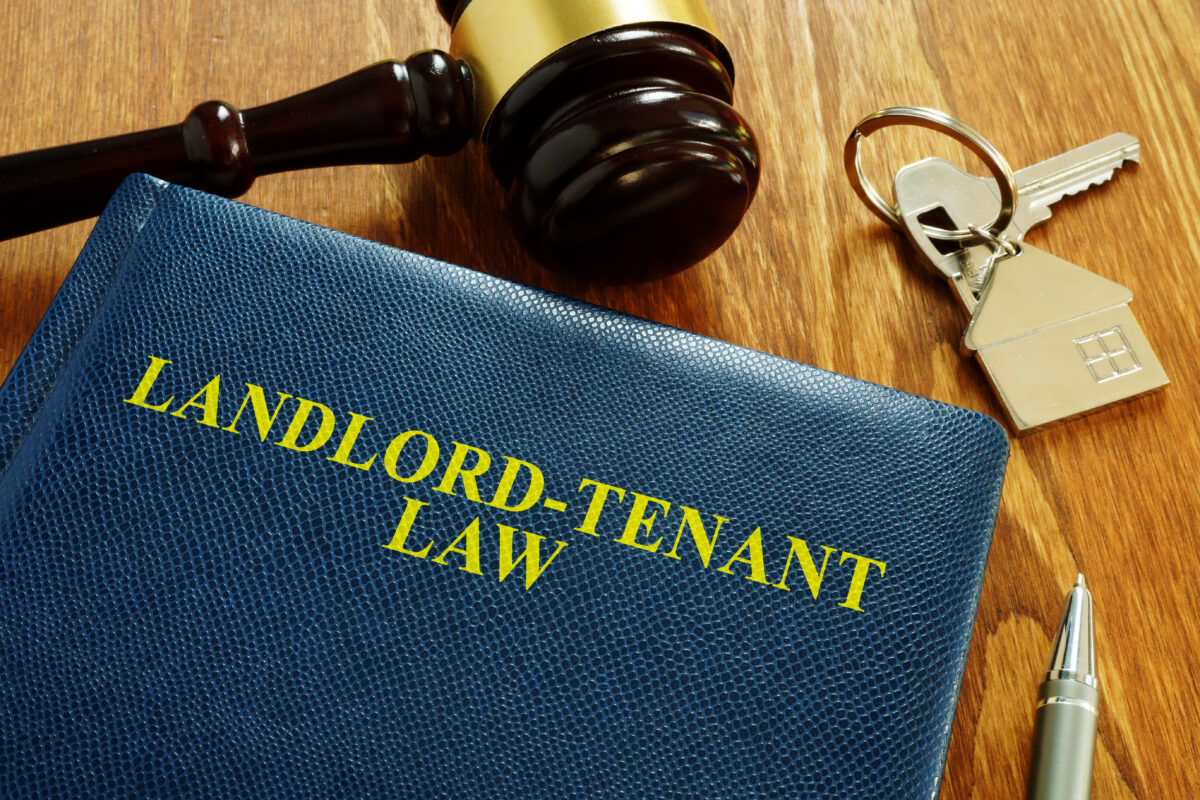If you’re currently a landlord in New York State, you may be struggling to keep up with all the legislative changes that have occurred since the start of the pandemic in 2020. However, as of January 16, 2022, the moratorium on Covid-related residential and commercial evictions expired, which means landlords are now able to move forward with eviction proceedings without restriction.
No one wants to evict their tenants; it’s costly, stressful, and can be a logistical nightmare. The more you educate yourself on NYS laws and processes, the more prepared you’ll be to handle this situation if it arises.
Here’s what you need to know right now about tenant evictions in New York State, what your rights as a landlord are, and what you can do to ensure a smooth eviction process.
The Basics of New York Evictions for Landlords
- In New York State, the eviction of a tenant is lawful only if the owner of the premises has brought a court proceeding and obtained a Judgment of Possession from the court.
- The average timeframe to complete an eviction is between 3 and 6 months. If the tenant has violated the terms of the lease, you may be able to evict them in less than 3 months.
- Make sure you have a signed copy of the tenant’s lease on file and that you have read and understood all of the terms and conditions thoroughly.
- Make sure you familiarize yourself with any laws and regulations specific to your county.
- If you have property in New York City, you can learn more about applicable laws and regulations here.
Grounds For Tenant Eviction
Not sure whether or not you can legally evict a tenant? Listed below are the grounds on which you can proceed with evictions in New York.
- Nonpayment of rent
- Damage to the rental property or unit
- Refusing the owner access to the property or unit for necessary repairs or inspections
- Violation of a substantial tenant obligation (an example of this would be if the tenant caused damage to the rental property which affected other tenants and refused to fix the damage once notified in writing by the landlord of his/her obligation to do so).
Giving Your Tenant(s) Notice
Once you have determined that your tenant has violated the terms and conditions of their lease and/or you have additional grounds for eviction, you must serve the tenant written notice advising them of their obligation to rectify the issue. You must also allow them an appropriate amount of time to do so (you can find out more about the types of notices used and time frames here).
The written notice must clearly state the problem, whether it is nonpayment of rent, damage, etc., as well as allow the tenant an appropriate amount of time to correct the issue. Otherwise, a judge could dismiss the case should it go to court.
What to Know When Bringing a Tenant to Court
If your tenant still does not comply within the specified timeframe, you may then proceed to bring the tenant to court. You can do this on your own or through legal representation.
You’ll need to file a Notice of Petition and Petition with the court that has jurisdiction in your county. The court will then advise you to schedule a court date, and you’ll need to pay the applicable fees. Once the fees are paid, you will then need to serve these papers to the tenant and provide proof of notice to the court. The Notice of Petition provides information to the tenant on the date, time, and location of the court proceeding and advises the tenant that they must answer the Petition. The Petition itself states the reason(s) the landlord wants to evict the tenant and/or other occupants from the premises.
In landlord/tenant cases, there is initially no waiting period. Cases will proceed to court immediately unless one of the parties files a motion asking for more time to prepare their case.
Prior to the court date, be sure to file all the necessary paperwork, including but not limited to, the signed lease, notices, rent receipts, the deed to the property, building inspection report, and photos of damages. If you have any witnesses for your case, ensure they are ready and available to testify in court on the specified date. Be prepared to provide the court with all pertinent information and your specific reasons for requesting the eviction.
On the day of the court proceeding, keep the following in mind:
- You or your legal representative must show up on time and come prepared with all necessary documentation. If you are late or don’t show up, the court can dismiss the case altogether.
- Notify the clerk that you are present and listen carefully for your case to be called.
- If the matter is not dismissed or settled, it will proceed to trial.
- Almost all landlord/tenant cases are decided by a judge, and the winning party receives a judgment.
- If you are awarded judgment and a Warrant of Eviction, you must ensure the tenant is served with a Notice of Eviction. Once service is complete and the appropriate fees are paid to the court, a sheriff, marshal, or constable can then evict the tenant.
- You can find out more about going to trial by visiting https://www.nycourts.gov/courthelp/GoingToCourt/trial.shtml.
What Not to Do During an Eviction
Bear in mind that at no time can a landlord evict a tenant forcibly or by unlawful means (i.e., changing the locks, shutting off utilities, removing personal items from the premises, or threatening the tenant in any way). Knowing your rights as a landlord and going through the legal process properly can ensure those rights are protected under the law.
Representation for Landlord/Tenant Evictions in New York
Are you a landlord considering eviction? Need legal advice or representation? Call The Smelyansky Law Firm office today for a free consultation at (518) 688-2800.

